Picturesque as it was, we were not sorry to be leaving Rama and our lack of even basic facilities. Our spirits however rose as we drove again back through Astore Village (which looked surprisingly a lot better on the way out than on the way in) and through the pretty rural countryside to the Deosai Plains, where we would stop for a picnic lunch before heading to our day's long destination of Shigar via Skardu.
The Deosai Plains National Park roads - or rather tracks - can be very challenging after wet weather and so for safety Sadruddin had organised for us to travel in convoy with an Indian family and their driver.
Alan and I have long laughed about the very common "Camp Granada Syndrome". We seem to be affected by it every time we travel. Those of you old enough to remember the lyrics to the old song "Camp Granada" will recall a few of the lines of:
"Hello Mudda, Hello Fadda
Here I am at Camp Granada
Camp is very entertaining
And they say we'll have fun when it stops raining......
You remember Leonard Skinner;
He got ptomain poisoning after dinner....
Now I don't want to scare ya
But my bunk mate has malaria.....
TAKE ME HOME, OH MUDDA, FADDA
TAKE ME HOME, I HATE GRANADA....
Wait a minute, it's stopped raining
Guys are swimming, gals are sailing
Playing baseball, gee that's betta
Mudda, Fadda, kindly disregard this letter!
These lyrics really sum up some of the roller coaster moods we experience when we travel. And this time was no different. Despondent one day and elated the next. But we would have to admit we have mostly loved all our travels to date and of course every trip has its challenging times. And our entire trip to Shigar through the simply wonderful Deosai Plains National Park was one of the highlights of our travels in Pakistan.
Out of Astore we drove through pretty verdant farmland surrounded by huge snow capped mountains, with frequent stops along the road due to numerous herds of goats and sheep, accompanied by their nomad shepherds.
Travelling by convoy had its difficulties. At one stage both vehicles became hopelessly lost and we wasted around an hour in having to double back to find the correct route. And then the other vehicle broke down. Khaja and the other driver spent another hour or so immersed under the bonnet of the car before we headed of again toward the Deosai Plains. There is no doubt about the capability of Pakistani drivers. They seem to be able to fix any mechanical problem, especially our Khaja.
Local people were friendly and many waved as we drove through their villages. There certainly were no tourists to be seen. And definitely no-one who looked like us.
Coming into the valley of Chilam Chauki the scenery was simply stunning. Verdant green pastures were surrounded by rugged mountains and frequent glaciers. Seemingly hundreds of horses and mules grazed on the grassy flats, attended to by numerous Gujar nomads and their families. Occasional nomads' tents dotted the pastures. We were some what gob smacked about the roughness of these hardy people; one woman controlling her herd of horses by accurately throwing rocks at them. With long braided unwashed hair, dressed in filthy long clothing and yelling at the top of her voice, even as a horse you would not be brave enough to stand in her way.
Apparently, even the villagers in this area are well known for their toughness and do not leave the mountains during winter. The icy conditions mean that they do not wash for the whole of the winter season and as we were told "have a rather black furry look to their bodies". Whether this
is correct, it certainly made for a good story and the locals did look very fearsome, if rather furry. Amazingly, even in this remote region the poor looking houses had satellite dishes.
The Chilam Chauki Valley was also heavily inhabited by army camps. It is considered to be a particularly sensitive military zone because of its proximity to the Line of Control with India's Jammu and Kashmir provinces.
Numerous army and police check points seemed to take forever. The last army check point before the Deosai National Park was at 3,446 meters. It was bitterly cold and took well over half an hour for the authorities to scrutinise our papers and passports. It was just as well that Sadruddin always takes a case load of photocopies of our papers with him. We were intrigued with one of the officials. He was extremely dark skinned and very, very tall. In fact we thought he may have been of African nationality. Our outrageous Sadruddin could not help himself and just had to ask him where he was from. The genial officer told him he was from Multan in the south-west of Pakistan and that a lot of people from his town were as dark skinned as him. "Must be baked by the hot sun!" whispered the outrageous Sadruddin.
And just as we thought we were finally at Deosai National Park, we had another check with the Forestry Department's Rangers' Office. Cost for tourists entering the park was US $8.00 per person and of course substantially less for locals. In this remote retreat for wildlife we were of course more than happy to pay. We particularly liked the sign "Shoot Only with a Camera"!
The Deosai Plains are located in the Gilgit Baltistan region of northern Pakistan and are at a height of no less than 4,000 meters, making it one of the highest plateaus in the world. The plains are accessible for only about four months per year because of the altitude, severe weather and largely ill defined jeep tracks across alpine swamps.
In 1993 some 3,630 square kilometers were declared by the Pakistani Government as the Deosai National Park due to concerns about the diminishing populations of sub-alpine vegetation, alpine meadows and Himalayan Brown Bears. It also provides an important refuge for the endangered snow leopard, Indian wolf and Himalayan Ibex.
The above tree line track through the National Park at around 4,700 meters provides fabulous views of snow capped mountains against a picture perfect backdrop of the the glorious Himalaya Mountains. The park was alive with little brown hopping bodies. They were the well known golden marmots.
Quite undisturbed by our presence, many were calmly sunning themselves or standing upright grooming themselves in the grassy fields. Squirrel like rodents, these little furry black and tan guys posed happily for our photos.
Sadruddin is famous for his picnic lunches and is a keen cook. In fact we always talk about food, especially his famous biryanis. We remember well our wonderful picnic at the famous Shandur Pass on our 2011 travels to the northern districts of the Kyber Pukhtunkhwa Province (formerly known as the North West Frontier Province). Refer travelogue "Secret Threads of the Old Silk Road".
Sitting in the grassy meadows overlooking the beautiful azure blue Sheosar Lake with the backdrop of the mighty Himalayas and devouring a lunch of tandoori chicken, cold potatoes and mangoes was sheer bliss. The mangoes were nothing like the round firm red blushed ones we have in Australia. They actually looked rather miserable, wrinkled and soft. Sadruddin showed us how to squash them in their skins before cutting the top open and sucking our the pulp. They were quite delicious but I didn't find it an easy way to to eat them. Unlike the others, I was covered in mango pulp.
I clearly recall thinking just how fortunate we were and a strange joyous almost spiritual peace and calm fell over me. The song "The Time of my Life" from the movie Dirty Dancing blasted into my mind. It was a powerful and euphoric experience that came from seemingly
nowhere. The calm stopped abruptly, followed by a strange, intense sensation of foreboding and melancholy. After we arrived home in Australia, I spent months wondering what this experience was about. Perhaps it was all too good to be true?
Our Indian part of the convoy seemed to have disappeared. We sat happily by the lake for some time and taking photos of the far Himalayas before heading across the real challenge of the swamp covered tracks of the National Park. It was for me the time of my life.
The track rapidly deteriorated into a fast flowing, pebbled river bed and poor Sadruddin had to stagger across with bare feet to determine if our jeep would be able to cross. The snow fed waters were deep and icy and we did not envy Sadruddin's efforts, nor Khaja's job of driving through it. Crossing the river bed was like driving through the sea. The sturdy jeep lurched and swayed being pulled in all directions by the strong currents. At one stage I actually wondered whether the car would make it but thankfully it did and we picked up a frozen cold Sadruddin on the other side. Driving in most parts of Pakistan is certainly not for the faint hearted!
On the other side of the river crossing were a number of road workers and their plastic tent housing. They were warm and friendly but what a remote place to be working. This was not the first time that poor Sadruddin had to "test the waters" to see if our jeep could pass through. Numerous melting glaciers made for treacherous and difficult driving conditions.
From Deosai to Skardu the road was typically rough and stone strewn making for an uncomfortable 50 kilometer trip. Ten kilometers out of Skardu we passed the huge Satpara Lake, the main source of water for the Skardu district. Sadruddin told us that a lot of the workers here are ex-prisoners, apparently keeping a low profile after their jail terms were completed.
Skardu is the main town in the Baltistan region and is located in the 10 kilometer wide by 40 kilometer long Skardu Valley at the confluence of the Indus River flowing from Tibet through neighbouring Ladakh and the Shigar River. It is located at an altititude of nearly 2,500 meters. The town functions as one of Pakistan's major trekking and expedition hubs, providing a gateway to the surrounding mountainous terrain which includes four of the world's fourteen mountains that exceed 8,000 meters. It is also home to a large military headquarters.
Skardu was nothing like we expected. The river basin was enormously wide and the river seemed to barely flow across its giant bed. Surrounding the river were enormous bare silver grey scree coated mountain peeks, giving the valley a rather sombre and eerie feeling.
We did not stop at Skardu on this journey but headed straight onto Shigar where we were to be delighted to stay at the famous Shigar Fort Hotel. Again, the Camp Granada syndrome....
A Spiritual Experience & Shoot Only with a Camera!
Tuesday, June 26, 2012
 Shigar, Gilgit-Baltistan, Pakistan
Shigar, Gilgit-Baltistan, Pakistan
Other Entries
-
1Maps of Our Travels
Jun 179 days prior Crowdy Head, Australiaphoto_camera3videocam 0comment 0
Crowdy Head, Australiaphoto_camera3videocam 0comment 0 -
2Aboard the Grafton Express for Sydney
Jun 188 days prior Crowdy Head, Australiaphoto_camera7videocam 0comment 0
Crowdy Head, Australiaphoto_camera7videocam 0comment 0 -
3A Very Well Kept Secret.....
Jun 197 days prior Shanghai, Chinaphoto_camera9videocam 0comment 0
Shanghai, Chinaphoto_camera9videocam 0comment 0 -
4City Furthest from a Coastline in the World
Jun 206 days prior Urumqi City, Chinaphoto_camera15videocam 0comment 0
Urumqi City, Chinaphoto_camera15videocam 0comment 0 -
5From Urumqi: A Blistering Hot Welcome to Pakistan!
Jun 224 days prior Islamabad, Pakistanphoto_camera12videocam 0comment 1
Islamabad, Pakistanphoto_camera12videocam 0comment 1 -
6Flight Cancelled - Corruption or Just Bad Weather?
Jun 233 days prior Naran, Pakistanphoto_camera19videocam 0comment 0
Naran, Pakistanphoto_camera19videocam 0comment 0 -
7Blown Away by Babusar
Jun 242 days prior Babusar Pass, Pakistanphoto_camera31videocam 0comment 0
Babusar Pass, Pakistanphoto_camera31videocam 0comment 0 -
8Picturesque Rama - But a Stay That Felt Forever
Jun 242 days prior Rama Gilgit-Baltistan, Pakistanphoto_camera10videocam 0comment 1
Rama Gilgit-Baltistan, Pakistanphoto_camera10videocam 0comment 1 -
9A Spiritual Experience & Shoot Only with a Camera!
Jun 26 Shigar, Pakistanphoto_camera17videocam 0comment 0
Shigar, Pakistanphoto_camera17videocam 0comment 0 -
10Stunning Shigar and the King's Bedroom
Jun 26later that day Shigar , Pakistanphoto_camera14videocam 0comment 0
Shigar , Pakistanphoto_camera14videocam 0comment 0 -
11NEVER, EVER Get Involved in a Political Rally.....
Jun 271 day later Khaplu, Pakistanphoto_camera11videocam 0comment 0
Khaplu, Pakistanphoto_camera11videocam 0comment 0 -
12More Photos of Khaplu
Jun 271 day later Khaplu, Pakistanphoto_camera13videocam 0comment 0
Khaplu, Pakistanphoto_camera13videocam 0comment 0 -
13Another Flight Cancelled - or Chilling at Chilas
Jun 282 days later Chilas, Pakistanphoto_camera15videocam 0comment 0
Chilas, Pakistanphoto_camera15videocam 0comment 0 -
14Lone Man with a Rifle: Chilas to Islamabad
Jun 293 days later Islamabad, Pakistanphoto_camera22videocam 0comment 0
Islamabad, Pakistanphoto_camera22videocam 0comment 0 -
15Vibrant Exotic Lahore
Jun 304 days later Lahore, Pakistanphoto_camera19videocam 0comment 0
Lahore, Pakistanphoto_camera19videocam 0comment 0 -
16"A Love Marriage Sir.....?"
Jul 026 days later Amritsar, Indiaphoto_camera14videocam 0comment 0
Amritsar, Indiaphoto_camera14videocam 0comment 0 -
17Kashmir: Tranquility and Terror
Jul 037 days later Srinagar, Indiaphoto_camera11videocam 0comment 0
Srinagar, Indiaphoto_camera11videocam 0comment 0 -
18Photo Gallery of Srinagar
Jul 037 days later Srinagar, Indiaphoto_camera30videocam 0comment 0
Srinagar, Indiaphoto_camera30videocam 0comment 0 -
19A Police Assault, a Yatra & Zozilla Pass
Jul 059 days later Kargil, Indiaphoto_camera22videocam 0comment 0
Kargil, Indiaphoto_camera22videocam 0comment 0 -
20Into Ladakh: "Take Care, Life Has No Spare"
Jul 0610 days later Alchi, Indiaphoto_camera24videocam 0comment 0
Alchi, Indiaphoto_camera24videocam 0comment 0 -
21Jule (joo-lay) from Ley!
Jul 0711 days later Leh, Indiaphoto_camera13videocam 0comment 0
Leh, Indiaphoto_camera13videocam 0comment 0 -
22Photo Gallery of Leh
Jul 0711 days later Leh, Indiaphoto_camera26videocam 0comment 0
Leh, Indiaphoto_camera26videocam 0comment 0 -
23"Luxury Camping" Or a Rough Night in Sarchu
Jul 1014 days later Sarchu Heights, Indiaphoto_camera32videocam 0comment 0
Sarchu Heights, Indiaphoto_camera32videocam 0comment 0 -
24To Manali: "But Sir, We Have a Flight to Catch..."
Jul 1115 days later Manali, Indiaphoto_camera18videocam 0comment 0
Manali, Indiaphoto_camera18videocam 0comment 0 -
25Magical Manali
Jul 1115 days later Manali, Indiaphoto_camera11videocam 0comment 0
Manali, Indiaphoto_camera11videocam 0comment 0 -
26Mandi Town: Frenetic but Friendly
Jul 1317 days later Mandi, Indiaphoto_camera18videocam 0comment 0
Mandi, Indiaphoto_camera18videocam 0comment 0 -
27Shimla: Birthplace of the Indian Partition
Jul 1418 days later Shimla , Indiaphoto_camera8videocam 0comment 0
Shimla , Indiaphoto_camera8videocam 0comment 0

 Shigar, Gilgit-Baltistan, Pakistan
Shigar, Gilgit-Baltistan, Pakistan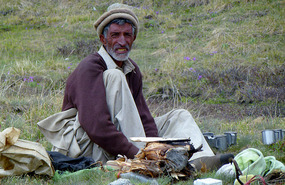
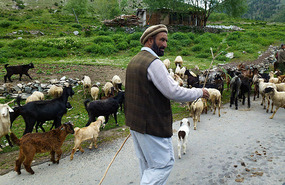
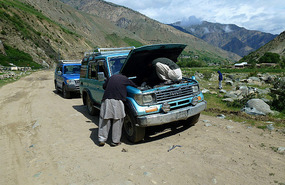
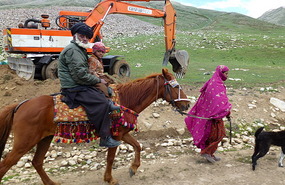
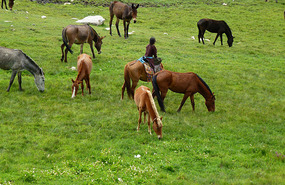
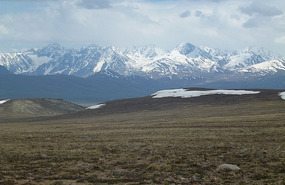
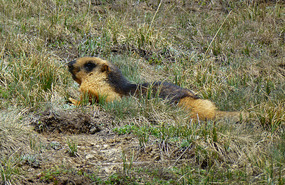
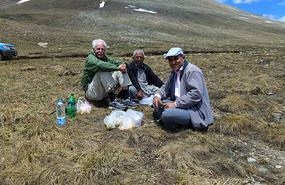
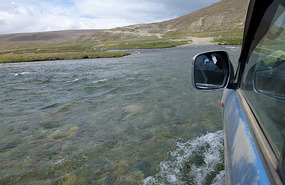
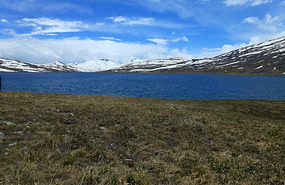
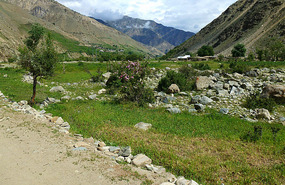
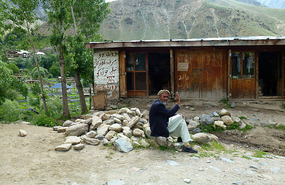
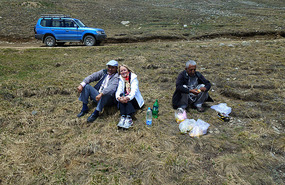
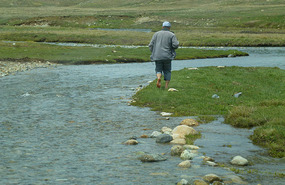
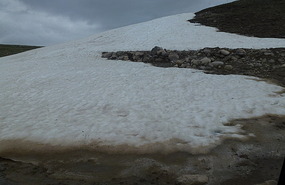
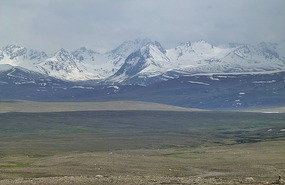
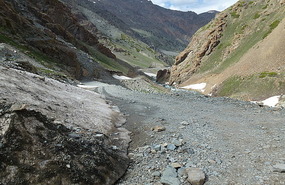




2025-05-22